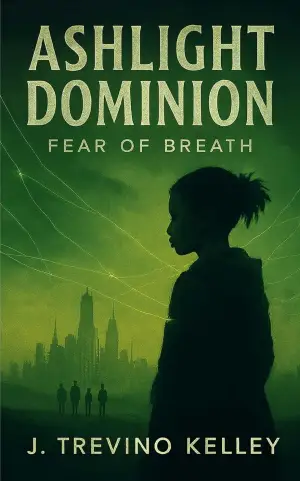Review of The Emperor of Gladness by Ocean Vuong
There’s something profoundly haunting yet deeply enriching about a book that dares to confront the weight of memory and the complexity of survival. When I first glimpsed the title, The Emperor of Gladness, I couldn’t help but be drawn to it, almost as if it were calling my name. Ocean Vuong, an author whose lyrical profundity has left an indelible mark on my reading life, delivers another heart-wrenching tale that invites us to sit in the uncomfortable spaces of existence.
At its core, The Emperor of Gladness is more than just a narrative; it’s a symphony of interwoven lives set against the backdrop of a post-industrial East Gladness. The story centers on Hai, a nineteen-year-old wrestling with despair who is pulled back from the brink by Grazina, an elderly widow grappling with the slow encroachment of dementia. The quote, “The hardest thing in the world is to live only once,” encapsulates the novel’s exploration of parallel struggles—how we navigate our past while trying to engage with our present.
What struck me most about Vuong’s storytelling is his ability to weave together complex themes of grief, memory, and fragile care with a deftness that feels both intimate and raw. Through the relationship between Hai and Grazina, we witness a humanity that transcends age—showing how both young and old carry the burden of being forgotten. Their poignant bond was a mirror reflecting my own experiences with loss and the strength we find in unexpected connections.
The prose is stunning, sharp as a knife, and effortlessly engaging. It doesn’t merely tell a story; it demands that you reckon with your own emotions. I felt like I was unearthing truths I hadn’t fully acknowledged within myself. When Hai reflects, “To remember is to fill the present with the past,” it hits hard. How often do we find ourselves haunted by memories, yet yearning for their warmth?
One striking element of the book is its portrayal of labor—not just as a background setting, but as a character in its own right. Hai’s work at HomeMarket becomes a canvas for exploring the extreme weight of existence. The juxtaposition of the brutal realities faced by both the slaughtered animals and the exhausted workers offers a haunting parallel to the human experience. These scenes, though difficult to read, are a poignant reminder of our collective struggles against an uncaring system.
However, I have to admit that some parts felt a bit stagnant. The pacing occasionally wavered, slightly detracting from the otherwise gripping narrative. That said, the weight of Vuong’s themes and the emotional depth carried the story for me. I walked away feeling profoundly moved—like I had been given permission to feel my own sadness without the pressure to find a solution.
In the end, I would recommend The Emperor of Gladness to anyone who seeks an exploration of what it means to endure, to wrestle with grief, and to celebrate the tiny acts of care that tether us to life. It’s not a book for those looking for neat resolutions or light-hearted tales; it’s a reflection on the beauty in painful experiences.
Reading this novel reminded me that life is composed of both the fragile and the beautiful, and in that balance, we can find our deepest connections. Thank you to Ashley and Cheska for sharing this reading journey with me. I can’t recommend this book enough—its haunting echoes will linger long after you close the cover.
Discover more about The Emperor of Gladness on GoodReads >>






